#prh
Explore tagged Tumblr posts
Text
Penguin Random House, AI, and writers’ rights
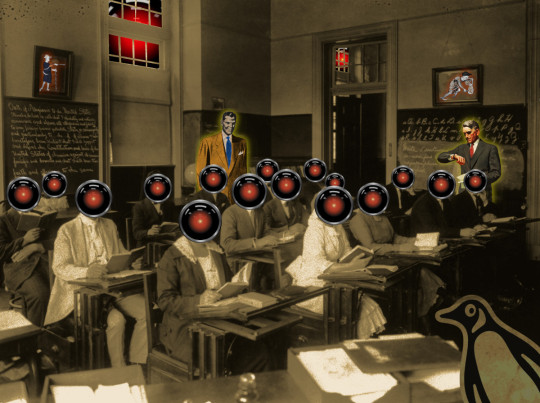
NEXT WEDNESDAY (October 23) at 7PM, I'll be in DECATUR, GEORGIA, presenting my novel THE BEZZLE at EAGLE EYE BOOKS.

My friend Teresa Nielsen Hayden is a wellspring of wise sayings, like "you're not responsible for what you do in other people's dreams," and my all time favorite, from the Napster era: "Just because you're on their side, it doesn't mean they're on your side."
The record labels hated Napster, and so did many musicians, and when those musicians sided with their labels in the legal and public relations campaigns against file-sharing, they lent both legal and public legitimacy to the labels' cause, which ultimately prevailed.
But the labels weren't on musicians' side. The demise of Napster and with it, the idea of a blanket-license system for internet music distribution (similar to the systems for radio, live performance, and canned music at venues and shops) firmly established that new services must obtain permission from the labels in order to operate.
That era is very good for the labels. The three-label cartel – Universal, Warner and Sony – was in a position to dictate terms like Spotify, who handed over billions of dollars worth of stock, and let the Big Three co-design the royalty scheme that Spotify would operate under.
If you know anything about Spotify payments, it's probably this: they are extremely unfavorable to artists. This is true – but that doesn't mean it's unfavorable to the Big Three labels. The Big Three get guaranteed monthly payments (much of which is booked as "unattributable royalties" that the labels can disperse or keep as they see fit), along with free inclusion on key playlists and other valuable services. What's more, the ultra-low payouts to artists increase the value of the labels' stock in Spotify, since the less Spotify has to pay for music, the better it looks to investors.
The Big Three – who own 70% of all music ever recorded, thanks to an orgy of mergers – make up the shortfall from these low per-stream rates with guaranteed payments and promo.
But the indy labels and musicians that account for the remaining 30% are out in the cold. They are locked into the same fractional-penny-per-stream royalty scheme as the Big Three, but they don't get gigantic monthly cash guarantees, and they have to pay the playlist placement the Big Three get for free.
Just because you're on their side, it doesn't mean they're on your side:
https://pluralistic.net/2022/09/12/streaming-doesnt-pay/#stunt-publishing
In a very important, material sense, creative workers – writers, filmmakers, photographers, illustrators, painters and musicians – are not on the same side as the labels, agencies, studios and publishers that bring our work to market. Those companies are not charities; they are driven to maximize profits and an important way to do that is to reduce costs, including and especially the cost of paying us for our work.
It's easy to miss this fact because the workers at these giant entertainment companies are our class allies. The same impulse to constrain payments to writers is in play when entertainment companies think about how much they pay editors, assistants, publicists, and the mail-room staff. These are the people that creative workers deal with on a day to day basis, and they are on our side, by and large, and it's easy to conflate these people with their employers.
This class war need not be the central fact of creative workers' relationship with our publishers, labels, studios, etc. When there are lots of these entertainment companies, they compete with one another for our work (and for the labor of the workers who bring that work to market), which increases our share of the profit our work produces.
But we live in an era of extreme market concentration in every sector, including entertainment, where we deal with five publishers, four studios, three labels, two ad-tech companies and a single company that controls all the ebooks and audiobooks. That concentration makes it much harder for artists to bargain effectively with entertainments companies, and that means that it's possible -likely, even – for entertainment companies to gain market advantages that aren't shared with creative workers. In other words, when your field is dominated by a cartel, you may be on on their side, but they're almost certainly not on your side.
This week, Penguin Random House, the largest publisher in the history of the human race, made headlines when it changed the copyright notice in its books to ban AI training:
https://www.thebookseller.com/news/penguin-random-house-underscores-copyright-protection-in-ai-rebuff
The copyright page now includes this phrase:
No part of this book may be used or reproduced in any manner for the purpose of training artificial intelligence technologies or systems.
Many writers are celebrating this move as a victory for creative workers' rights over AI companies, who have raised hundreds of billions of dollars in part by promising our bosses that they can fire us and replace us with algorithms.
But these writers are assuming that just because they're on Penguin Random House's side, PRH is on their side. They're assuming that if PRH fights against AI companies training bots on their work for free, that this means PRH won't allow bots to be trained on their work at all.
This is a pretty naive take. What's far more likely is that PRH will use whatever legal rights it has to insist that AI companies pay it for the right to train chatbots on the books we write. It is vanishingly unlikely that PRH will share that license money with the writers whose books are then shoveled into the bot's training-hopper. It's also extremely likely that PRH will try to use the output of chatbots to erode our wages, or fire us altogether and replace our work with AI slop.
This is speculation on my part, but it's informed speculation. Note that PRH did not announce that it would allow authors to assert the contractual right to block their work from being used to train a chatbot, or that it was offering authors a share of any training license fees, or a share of the income from anything produced by bots that are trained on our work.
Indeed, as publishing boiled itself down from the thirty-some mid-sized publishers that flourished when I was a baby writer into the Big Five that dominate the field today, their contracts have gotten notably, materially worse for writers:
https://pluralistic.net/2022/06/19/reasonable-agreement/
This is completely unsurprising. In any auction, the more serious bidders there are, the higher the final price will be. When there were thirty potential bidders for our work, we got a better deal on average than we do now, when there are at most five bidders.
Though this is self-evident, Penguin Random House insists that it's not true. Back when PRH was trying to buy Simon & Schuster (thereby reducing the Big Five publishers to the Big Four), they insisted that they would continue to bid against themselves, with editors at Simon & Schuster (a division of PRH) bidding against editors at Penguin (a division of PRH) and Random House (a division of PRH).
This is obvious nonsense, as Stephen King said when he testified against the merger (which was subsequently blocked by the court): "You might as well say you’re going to have a husband and wife bidding against each other for the same house. It would be sort of very gentlemanly and sort of, 'After you' and 'After you'":
https://apnews.com/article/stephen-king-government-and-politics-b3ab31d8d8369e7feed7ce454153a03c
Penguin Random House didn't become the largest publisher in history by publishing better books or doing better marketing. They attained their scale by buying out their rivals. The company is actually a kind of colony organism made up of dozens of once-independent publishers. Every one of those acquisitions reduced the bargaining power of writers, even writers who don't write for PRH, because the disappearance of a credible bidder for our work into the PRH corporate portfolio reduces the potential bidders for our work no matter who we're selling it to.
I predict that PRH will not allow its writers to add a clause to their contracts forbidding PRH from using their work to train an AI. That prediction is based on my direct experience with two of the other Big Five publishers, where I know for a fact that they point-blank refused to do this, and told the writer that any insistence on including this contract would lead to the offer being rescinded.
The Big Five have remarkably similar contracting terms. Or rather, unremarkably similar contracts, since concentrated industries tend to converge in their operational behavior. The Big Five are similar enough that it's generally understood that a writer who sues one of the Big Five publishers will likely find themselves blackballed at the rest.
My own agent gave me this advice when one of the Big Five stole more than $10,000 from me – canceled a project that I was part of because another person involved with it pulled out, and then took five figures out of the killfee specified in my contract, just because they could. My agent told me that even though I would certainly win that lawsuit, it would come at the cost of my career, since it would put me in bad odor with all of the Big Five.
The writers who are cheering on Penguin Random House's new copyright notice are operating under the mistaken belief that this will make it less likely that our bosses will buy an AI in hopes of replacing us with it:
https://pluralistic.net/2023/02/09/ai-monkeys-paw/#bullied-schoolkids
That's not true. Giving Penguin Random House the right to demand license fees for AI training will do nothing to reduce the likelihood that Penguin Random House will choose to buy an AI in hopes of eroding our wages or firing us.
But something else will! The US Copyright Office has issued a series of rulings, upheld by the courts, asserting that nothing made by an AI can be copyrighted. By statute and international treaty, copyright is a right reserved for works of human creativity (that's why the "monkey selfie" can't be copyrighted):
https://pluralistic.net/2023/08/20/everything-made-by-an-ai-is-in-the-public-domain/
All other things being equal, entertainment companies would prefer to pay creative workers as little as possible (or nothing at all) for our work. But as strong as their preference for reducing payments to artists is, they are far more committed to being able to control who can copy, sell and distribute the works they release.
In other words, when confronted with a choice of "We don't have to pay artists anymore" and "Anyone can sell or give away our products and we won't get a dime from it," entertainment companies will pay artists all day long.
Remember that dope everyone laughed at because he scammed his way into winning an art contest with some AI slop then got angry because people were copying "his" picture? That guy's insistence that his slop should be entitled to copyright is far more dangerous than the original scam of pretending that he painted the slop in the first place:
https://arstechnica.com/tech-policy/2024/10/artist-appeals-copyright-denial-for-prize-winning-ai-generated-work/
If PRH was intervening in these Copyright Office AI copyrightability cases to say AI works can't be copyrighted, that would be an instance where we were on their side and they were on our side. The day they submit an amicus brief or rulemaking comment supporting no-copyright-for-AI, I'll sing their praises to the heavens.
But this change to PRH's copyright notice won't improve writers' bank-balances. Giving writers the ability to control AI training isn't going to stop PRH and other giant entertainment companies from training AIs with our work. They'll just say, "If you don't sign away the right to train an AI with your work, we won't publish you."
The biggest predictor of how much money an artist sees from the exploitation of their work isn't how many exclusive rights we have, it's how much bargaining power we have. When you bargain against five publishers, four studios or three labels, any new rights you get from Congress or the courts is simply transferred to them the next time you negotiate a contract.
As Rebecca Giblin and I write in our 2022 book Chokepoint Capitalism:
Giving a creative worker more copyright is like giving your bullied schoolkid more lunch money. No matter how much you give them, the bullies will take it all. Give your kid enough lunch money and the bullies will be able to bribe the principle to look the other way. Keep giving that kid lunch money and the bullies will be able to launch a global appeal demanding more lunch money for hungry kids!
https://chokepointcapitalism.com/
As creative workers' fortunes have declined through the neoliberal era of mergers and consolidation, we've allowed ourselves to be distracted with campaigns to get us more copyright, rather than more bargaining power.
There are copyright policies that get us more bargaining power. Banning AI works from getting copyright gives us more bargaining power. After all, just because AI can't do our job, it doesn't follow that AI salesmen can't convince our bosses to fire us and replace us with incompetent AI:
https://pluralistic.net/2024/01/11/robots-stole-my-jerb/#computer-says-no
Then there's "copyright termination." Under the 1976 Copyright Act, creative workers can take back the copyright to their works after 35 years, even if they sign a contract giving up the copyright for its full term:
https://pluralistic.net/2021/09/26/take-it-back/
Creative workers from George Clinton to Stephen King to Stan Lee have converted this right to money – unlike, say, longer terms of copyright, which are simply transferred to entertainment companies through non-negotiable contractual clauses. Rather than joining our publishers in fighting for longer terms of copyright, we could be demanding shorter terms for copyright termination, say, the right to take back a popular book or song or movie or illustration after 14 years (as was the case in the original US copyright system), and resell it for more money as a risk-free, proven success.
Until then, remember, just because you're on their side, it doesn't mean they're on your side. They don't want to prevent AI slop from reducing your wages, they just want to make sure it's their AI slop puts you on the breadline.

Tor Books as just published two new, free LITTLE BROTHER stories: VIGILANT, about creepy surveillance in distance education; and SPILL, about oil pipelines and indigenous landback.
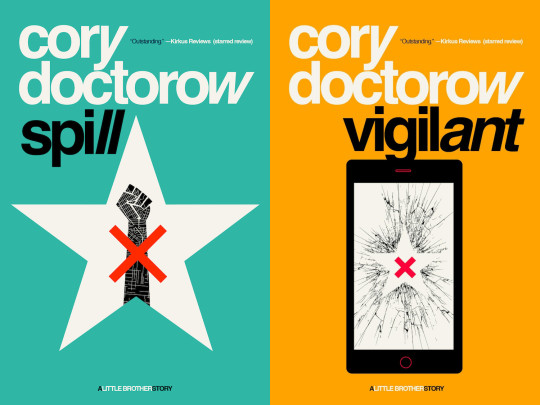

If you'd like an essay-formatted version of this post to read or share, here's a link to it on pluralistic.net, my surveillance-free, ad-free, tracker-free blog:
https://pluralistic.net/2024/10/19/gander-sauce/#just-because-youre-on-their-side-it-doesnt-mean-theyre-on-your-side

Image: Cryteria (modified) https://commons.wikimedia.org/wiki/File:HAL9000.svg
CC BY 3.0 https://creativecommons.org/licenses/by/3.0/deed.en
#pluralistic#publishing#penguin random house#prh#monopolies#chokepoint capitalism#fair use#AI#training#labor#artificial intelligence#scraping#book scanning#internet archive#reasonable agreements
731 notes
·
View notes
Note
What happened to Harry's book deal? Will there be more or is that also finished.
My gut says it's done. The actual press release announcing the deal only mentioned the memoir.
That the deal for several books was only ever a rumor, and one that sounded legit enough that a lot of us - myself included, I won't deny that - fell for it.
25 notes
·
View notes
Text
Questions!
Simple enough, send in any questions you have about my rewrite or redesigns, or my opinions on anything hellaverse/writing/artistic/vivziepop related!
#helluva boss critical#helluva boss criticism#vivziepop critical#vivziepop criticism#helluva boss critique#hazbin hotel criticism#helluva boss rewrite#vivziepop critique#hazbin hotel critical#hazbin hotel rewrite#project redemption hotel#prh#helluva life
15 notes
·
View notes
Text
Untitled
the cease and desist as there is
only this (we need to huddle)
The stars are mirror reflections. The dusty and weird parts are glare. All of the probes and space stuff that go out into it aren’t getting much farther away once they reach the edge they’re just refracting off long layers of the stuff with a tag on the bottom corner that says “things are kind of fussy here, there are only one way signs on both sides.” Some of the tentacles are out of control. Gave up language____. Sorry i’m talking again about the blue stack of fat tests and miss-
trials and i understand my own misconceptions. I took out a bridge from in the fridge and i love you fridge. But you’re made wrong kid. Don’t call me that now let’s try taking good care of mice and rats allow for clean up of the rats. A word i shouldn’t have to say but just be happy when i see a single one of that. And I don’t know my strings it’s some kind of clear fog. Eternal light drizzle because we’re all possible everyone’s a cousin and the numbers doesn’t not just a dozen. They’re endless because it’s breathing on out. Sorry for not trying to understand you right. And i know you can know it’s so because it was a moment in flight. I reside as a blank slate while keeping the very cleanest plate. I’m not sure where I am I’ll learn pottery even though i can’t really do it. I’ve got a piece of a rube golberg machine for world peace and see everyone realizing they really like beans. If both of us are one person or everyone maybe i’ll figure out what i don’t care to know, all the details about but rain on your head is a drought saving snout. Why are we using time when we could just “cmon don’t tell me it’s sideways elation.” Just looking for a good stream of it. Ya know when the water was so happy it didn’t need to go to the sky. Just saying “ya know ya know” when there’s never been a know. I love you state of snow and i’ll try to make you so right that you puddle embraced with what you need. We’re the only one here. And we number every single particle and the thoughts and stature of everything. I will avoid all future bubble gum stuck to everything. I think it’s really what i’m supposed to do here. Even the sidewalk. Time is a confusing time of year this year. I don’t know how fast i should get rid of this beer. Is this all a learning session or are my best tries going? Maybe if i do some yoga tricks i’ll get into better growing. I’ll raise my computer and keep growing through a speed detector lens. It’s all up to the whole gang i’m trying my best. The best thing ever is is and that’s because “let’s all be friends”, if you decide to should i zap straight to? I’m talking to you every animal in this tragically shaped assembly line zoo. And us in the box seats even though everyone is smart we’re dumbing down and have shovels and we’re clearing daily house and i’m sure everyone that’s ever done something ever when they weren’t vibrating right felt a lot better when every thing snapped on. When you blinked at the high of your joy. I will not be
deterred to paint in the language that’s doing holding just because i do ever started talking at the get go The best is remembering to take a pace that’s the weight of a look too many - yeah we got to find a better lock - would rather tread through what is now - you’d still rather lock that up for a while - but it’d be better to not have a giant tall glass of chai that’s so tall you’ll never be able to reach the top and everyone’s a lot of different people in a lot of ways as if to comment on whether or not there could be ways. Have you ever not spoken for days and wondered who i’m speaking to in there? No me neither i have not but on my less talking days i still think i’m just a normal guy my age. Slow me down when i tire down. “Wha?” was the noise that rented a wall of sirens i can imagine how good things work is that they just play music and coast us across from a sign that says “take as you give” there’s a field of writing signs and somewhere your man or wife. Everything is of some kind of material and we’re all green and yellow doing things. awesome i have got to sleep in a sleek way so i can see clear whether i’m trapped in a replay of a show where they just brake down the language but they don’t talk in one sentence they scramble with the words in the most highly artisan suave. We will sleep on some stones for people but i know there are ways
0 notes
Text
In September 2024, during Banned Books Week, Penguin Random House (PRH) expanded its Intellectual Freedom Taskforce, a group dedicated to protecting the freedom to read, by naming Rosie Stewart senior manager of public policy. Stewart—who cofounded MOVE (Mobilize, Organize, Vote, Empower) Texas, an organization focused on empowering underrepresented youth communities through civic engagement, issue advocacy, and leadership development—comes to PRH most recently from the American Library Association’s Public Policy and Advocacy office, where she served as manager of grassroots communications. She recently spoke about her new job and what gives her hope.
What are some highlights from your first months in this role? Highlights have been visits to libraries and bookstores. At PRH we did the Banned Wagon tour, and I got to go to the Milwaukee Public Library. We gave out over three thousand books in a day—banned books like The Outsiders and Hair Love, things you can’t believe are banned.
Does advocacy in the for-profit world differ from advocacy in the nonprofit world? The coffee machine is nicer! PRH does not have boundless resources, but the resources are greater. PRH is a really mission-driven organization, and I hear people talk about the mission a lot, which is very similar to [a nonprofit]. The mission is to create books for everyone. And that’s why this is so important to us.
How is the focus on proactive legislation that protects the right to read a necessary complement to the litigation work PRH is doing to fight bans? The legislative focus is really key, showing the people who are already doing this advocacy at the state capitols that we have their backs, whether that’s contracting with local groups, supporting them financially, or connecting them to other relationships that we might have…. Many people in a lot of these difficult [locations] need hope and something to organize around, rather than feeling like they are constantly on the defensive, wondering what is coming next in this assault on books.
If a state does not yet have a Right to Read Act, what steps do you take? I touch base with people who are on the ground. I’ve tried to come into a state and have conversations with a broad array of stakeholders to make those connections and convene groups that are going to be key to making sure that we can get good legislation passed, [legislation] that is responsive to the needs of the people who are working in the field.
How should people who are not librarians or legislators get involved? First, I would say “call me,” because I definitely want to know. But also get involved in whatever kind of professional association or groups already exist in your state. The state library associations do so much great work. See if your state has a Freedom to Read project. PEN America has a publicly accessible index of all the books that are being banned [in school libraries across the United States]. Unite Against Book Bans [sends] out targeted geographic alerts to let people know if there are concerning issues going on in their communities.
What other initiatives are you working on? One of the things that is hardest to coordinate but perhaps most important to do is to get parents speaking at school boards, particularly parents of students whose perspectives are represented in these books that are getting taken off the shelves. The book banners have such a strong voice on parental rights that [we need] parents [to] come in and say, “What about my parental right to have my child see their perspective on the shelf?”
Kids can access new communities and ideas on the internet. Why do they need to find them in books? We know that if kids see themselves in the books they are reading, they are more likely to become lifelong readers. The fact that our kids get access to a complete thought from an author helps them understand themselves and the world around them. If I had a child I would prefer that a certified, trained librarian directed them through that discovery, rather than the algorithm, so to speak.
Name your favorite banned book. Personally, 1984 by George Orwell. It exposes the logic of authoritarianism and totalitarian governments—the concept of “doublespeak.” All of this book banning is being done to “protect children.” It doesn’t protect children to remove their and other people’s perspectives from the library.
Do you have a “why” for this work? One thing is my experience as a trans woman. If I had books growing up that accurately reflected my perspective, I think I would have saved years of heartache and loneliness and been able to take care of myself better.
What is giving you hope right now? The number and scale and scope of different groups working on this issue. It’s harder to coordinate when it is a genuine grassroots movement of so many different people from so many walks of life trying to move in one direction, but that gives me hope. The challenge is, how do we organize that into a cohesive movement that has an impact on public policy? I feel lucky to get to play whatever small role I get to play in that fight.
Emily Pérez is the author of What Flies Want (University of Iowa Press, 2022), a winner of the Iowa Prize, and a coeditor of the anthology The Long Devotion: Poets Writing Motherhood (University of Georgia Press, 2022). She lives in Denver with her family.
#article#interview#poets and writers magazine#PRH#book banning#book bans#books and libraries#books and reading#books and literature#library#libraries#public libraries#activism#community organizing#collective action
0 notes
Text
Blog Tour: Top 5 Reasons to Read PLAN A by Deb Caletti!
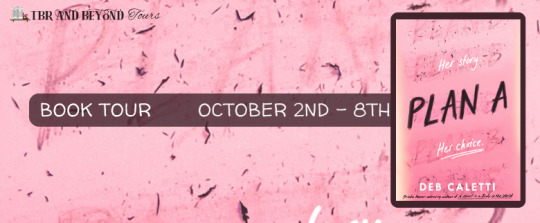
Welcome to Book-Keeping and my stop on the TBR and Beyond Tours blog tour for Plan A by Deb Caletti, which is OUT TODAY! I've got all the book details for you below, along with my top five reasons to read this latest Caletti contemporary.
About the Book

title: Plan A author: Deb Caletti publisher: Labyrinth Road release date: 3 October 2023
A sixteen-year-old girl’s road trip across the country to get an abortion becomes a transformative journey of vulnerability, strength, and above all, choice. From the acclaimed author of A Heart in a Body in the World , this is both an achingly tender love story and a bold, badly needed battle cry about bodily autonomy and the experiences that connect us. Ivy can’t entirely believe it when the plus sign appears on the test. She didn’t even know it was possible from . . . what happened. But it is, and now she is, and instead of spending the summer working at the local drugstore and swooning over her boyfriend, Lorenzo, suddenly she’s planning a cross-country road trip to her grandmother’s house on the West Coast, where she can legally obtain an abortion. Escaping her small Texas town and the judgment of her friends and neighbors, Ivy hits the road with Lorenzo, who, determined to make the best of their “abortion road trip love story,” has transformed the journey into a whirlwind tour of the all the way from Paris, Texas, to Rome, Oregon . . . and every rest-stop diner and corny roadside attraction along the way. And while Ivy can’t run from the incessant pressure of others’ opinions about her body or from her own expectations and insecurities, she discovers a new world of healing and hope. As the women she encounters share their stories, she chips away at the stigma, silence, and shame surrounding reproductive rights while those collective experiences guide her to her own rightful destination. Content Warning: Abortion, harassment, assault, rape, trauma
Add to Goodreads: Plan A Purchase the Book: Amazon | B&N | Bookshop.org
About the Author

Deb Caletti is the award-winning and critically acclaimed author of over twenty books for adults and young adults, including Honey, Baby, Sweetheart, a finalist for the National Book Award, and A Heart in a Body in the World, a Michael L. Printz Honor Book. Her books have also won the Josette Frank Award for Fiction, the Washington State Book Award, and numerous other state awards and honors, and she was a finalist for the PEN USA Award. She lives with her family in Seattle.
Connect with Deb: Website | Instagram | Goodreads | Facebook
Top 5 Reasons to Read
It's Deb Caletti. Isn't that enough?! I read and reviewed A Heart in a Body in the World when it released, and I *still* think about it to this day. She writes YA contemporary like no other.
I don't think there is any topic more relevant and urgent to the lives of young women than abortion -- the right to healthcare, the right to make one's own choices, the right to control one's own body.
The mother in this book is strong and amazing and supportive, and it was wonderful to read such a present and powerful parental character in YA.
The trip across country that Ivy and Lorenzo make is whimsical and fun while also leading to Ivy figuring out more who she is and what she wants. It may seem weird to have the trip to get an abortion be like this, but when reading you realize it makes perfect sense.
Perhaps my most favorite aspect of the book, and my top reason to read it, is the character of Lorenzo. Ivy's boyfriend not only supports whatever choice she wants to make, he calculates the travel route that takes them through all the "world cities" between Paris, Texas and Manhattan Beach, Oregon -- from Lima, Oklahoma to Naples, Utah to Rome, Oregon. He knows how desperately Ivy wishes to see the world, and he wants to give it to her, making my heart completely full.
While this isn't a traditional review, I do have to say this is a 5-star book for me for sure. I want to put it in the hands of every teen reader I come across -- and parents, too! It's beautifully written and empowering, and I can't recommend it highly enough.
Thank you so much to the publisher, author, and TBR and Beyond for the early copy of the book and for having me on tour!
#plan a#deb caletti#yalit#ya lit#ya literature#ya books#young adult#new release#newrelease#blog tour#new releases#labyrinth road#penguin random house#prh#abortion#abortionbooks#top 5 reasons to read#tbrbeyondtours#tbr and beyond tours
1 note
·
View note
Note
“That whatever Louis could not provide Lestat, however momentarily, Lestat would find elsewhere, ever-coveted flower in the savage garden that he was, contorting himself towards whatever light would shine on his petals and feed his flimsy stem, his weak and needy self, and Louis knew that, he did, but still. “
So when are you gonna write some original material? Your own novel? Because I would read that shit in a heart beat!!!!! Talented girl that you are ✨✨✨✨
Oh! Haha, thank you, you’re very sweet! I actually did have a novel published by Penguin Random House Australia a few years ago, but it came out at the height of the pandemic, so it didn’t do very well (not badly! But not great). It did get a very good review in The Guardian though, which is ever my little claim to fame, haha. I’m working on a new novel though - my agent is very gently pressuring me - which I’m hoping to have with her by July. We’ll see though, unfortunately I still have to day job to pay my rent, haha.
#I haven’t earned out my advance on my first novel#so that has an impact#but my editor at PRH has still been very supportive and wants to see my next manuscript#so on the flip side that’s nice#I do get a very small cheque every year from library borrowings which is always a joy#so casual reminder that by borrowing through your library you’re paying authors!#(I have posted about my book on here before which is I’m sure how the person who doxxed me found my surname)#(but yes! I often write fanfic to warm up for original writing ☺️)#thank you again though!#like a dogless bone#fic asks
9 notes
·
View notes
Text
today at work I had to juggle 5 different people including my boss calling me all at the same time I'm putting it on my resume
#I had my boss on hold the IT guy on hold#the executive editor at PRH (imprint) on hold#the author of best selling thriller series (redacted) on hold#AND THE MANAGER OF FAMOUS TECH WRITER (redacted) on hold#like WHY THE FUCK WAS EVERYONE CALLING ME.
2 notes
·
View notes
Text
doing interviews for the one job you really didnt want oh what if i died
1 note
·
View note
Text
Who do y'all want to see my redesign/rewrite of next? Some will be grouped together cause it makes sense to me,
#helluva boss critical#helluva boss criticism#helluva boss rewrite#helluva boss redesign#hazbin hotel criticism#hazbin hotel rewrite#prh#helluva life#polls
13 notes
·
View notes
Text
I'm so fucking bored I miss dog sim games sm but literally none of them are good ahhghhhgghgh
0 notes
Text
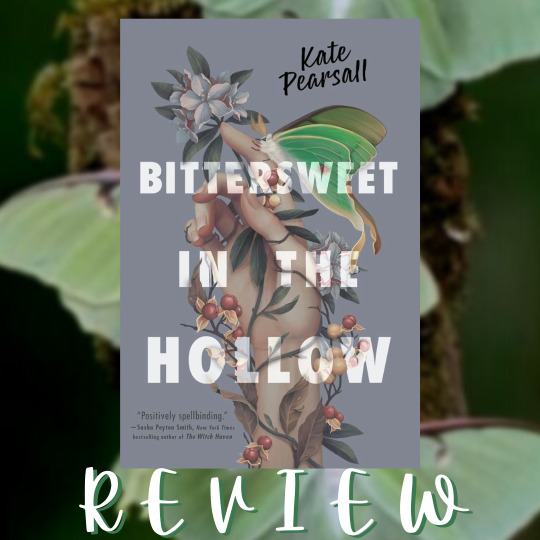
#arc review#arc reader#arc reviewer#book review#book reviewer#book blogger#book blog#new release#new release book#new book release#new book#netgalley#kate pearsall#bittersweet in the hollow#penguin young readers group#prh community#book influencer#5 star review#five star review#coming of age#folk horror#supernatural fantasy#ya fiction#ya horror#ya mystery#ya thriller
0 notes
Text
IDW shitcanning everyone's book
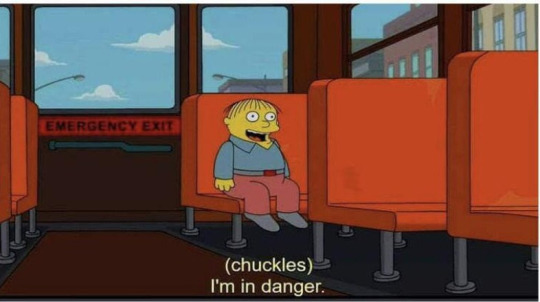
#i'm on one book that survived the Oni-pocalypse Round 2#and like 2 months ago they shitcanned the smithsonian line and left a bunch of my friends gigless >:(#mad cave has a new EiC that's supposedly the reason why everything's all futzy there now#the S&S shit#i adore [redacted] at abrams theyre my fuckin bestie but ABRAMS PLEASE;;;#the only tradpub place that isn't NERO STYLE FALLING OF ROME right now is like. er. idk?? chronicle??? the P side of PRH?!?#harper had all those “voluntary layoffs”#the nib is dead#i mean holy shit comics is dire rn
1 note
·
View note
Text
Dark Horse released a statement a while back!

It's going to release on either the 4th or the 11th, depending on if you want to go by Dark Horse's website, or Penguin Random House.
wait what happened 2 the trigun reprint btw like is that a fr thing or did it just go away

#PRH owns DH so idk#But! They're working with Nightow on some capacity so I'm a little hype#Dark Horse blease... I beg...... more info...... cover reveal........#Sorry for rambling a bit the reprints just haunt me lol#Trigun
61 notes
·
View notes
Text
official stranger things scripts publishing this fall!!
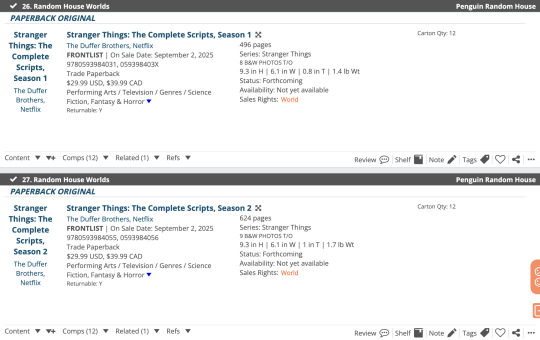


have folks talked about this??? probably yes but idk if it's been officially announced? it's starting to populate on retail sites including penguin random house and edelweiss (which is for librarians/booksellers/book professionals) etc
(PRH link) (edelweiss link)
Season 1 - Sept. 2, 2025 Season 2 - Sept. 2, 2025 Season 3 - Oct. 7, 2025 Season 4 - Nov. 4, 2025
the release dates set it up to perfectly hype up (and capitalize on) season 5's release in nov/dec. granted, it being unofficial for now means those on-sale dates could change.
the other obvious note is that i'm sure these versions have been edited and scrubbed for anything spoilery or any juicy crumbs, lol. still cool to have the official scripts for every episode, though.
disclaimer bc of my involvement in the dustin experiment: i'm not involved in this at all, have no insider knowledge, am speculating and commenting as a fan etc etc.
138 notes
·
View notes